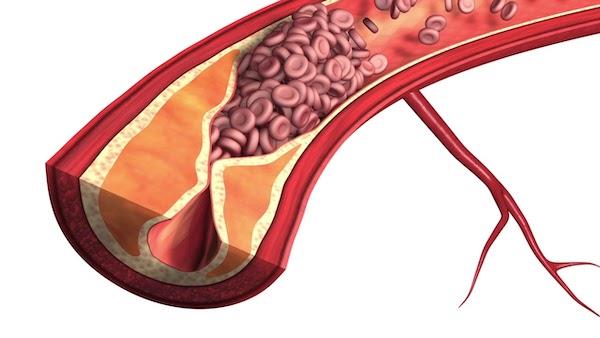Intestinal ischemia: what you need to know!

Intestinal ischemia is a disease that occurs when blood flow to the intestine is reduced due to a blockage of a blood vessel (usually an artery). This disease can affect the small intestine, the large intestine (colon), or both.
Intestinal ischemia is a serious condition because it causes pain and affects the functioning and function of the intestines. In severe cases, reduced blood flow to the intestines can damage the intestinal parenchyma and lead to death.

Intestinal ischemia is treatable. To improve recovery, you need to recognize the early symptoms and treat the disease promptly.
content
- What are the common symptoms of intestinal ischemia?
- What causes intestinal ischemia?
- Who is prone to intestinal ischemia?
- Complications due to intestinal ischemia
- How is intestinal ischemia diagnosed?
- Methods in the treatment of intestinal ischemia
What are the common symptoms of intestinal ischemia?
Symptoms of intestinal ischemia may appear suddenly (acute) or gradually (chronic). These symptoms can vary from person to person.
Acute intestinal ischemia can cause:
- Sudden abdominal pain that can range from mild, moderate to severe
- The feeling of having a bowel movement is unbearable
- Frequent bowel movements
- Abdominal pain or bloating
- There is blood in the stool
- Cognitive disorders in the elderly
Chronic anemia in the intestines can cause:
- Abdominal cramping or a feeling of fullness, which usually occurs within 30 minutes of eating and can last for 1 to 3 hours
- Abdominal pain that gets worse for weeks or months
- Do not dare to eat or drink for fear of pain after eating
- Unintentional weight loss
- Diarrhea
- Nausea
- Flatulence

When do you need to see a doctor?
If the pain is sudden and severe, you should seek medical attention immediately. Pain that makes you so uncomfortable that you can't sit still or have no way to relieve the pain is often an emergency. Also, if there are any symptoms that worry you, you should also see your doctor to find out the cause.
What causes intestinal ischemia?
Intestinal ischemia is usually caused by decreased or blocked blood flow in the large arteries that carry blood to the intestines. This condition can be caused by a variety of reasons, such as blockage by a blood clot or narrowing of the arteries due to cholesterol buildup. Veins can also become blocked but are rarer than arteries.
Intestinal ischemia is usually divided into the following categories:
Colonic ischemia (ischemic colitis)
This is the most common type of intestinal ischemia. It occurs when blood flow to the colon is reduced. Some of the causes that can lead to this condition include:
- Low blood pressure due to heart failure, major surgery, trauma or shock.
- A blood clot blocks an artery that supplies blood to the colon
- Intestinal volvulus or intestinal obstruction due to hernia
- Scars or tumors can cause bowel obstruction and dilate the bowel above the obstruction
- Other disorders affecting circulation, such as vasculitis, lupus, or sickle cell anemia
- Certain medications that constrict blood vessels, such as heart medications, migraines
- Hormonal medications, such as birth control pills
- Using cocaine or methamphetamine
- Do vigorous exercise, such as long-distance running
Acute mesenteric ischemia
This type usually affects the small intestine, has a sudden onset, and can be caused by:
- A thrombus travels from the heart and travels through the blood vessels, then blocks an artery. Usually the blocked artery is the superior mesenteric artery, which supplies oxygen-rich blood to the intestinal tract. Causes of blood clots are congestive heart failure or arrhythmias.
- Blockage caused by rupture of fatty deposits on the artery walls (atherosclerosis). This condition is common in people who have previously had chronic ischemia.
- Reduced blood flow due to low blood pressure. Low blood pressure can be caused by shock, heart failure, chronic kidney failure, or certain medications. This condition often occurs in people with serious underlying medical conditions or in patients with previous atherosclerosis.
Chronic mesenteric ischemia
Chronic mesenteric ischemia is also known as intestinal angina and is often the result of atherosclerosis. The disease usually progresses slowly and becomes symptomatic when two of the three main blood vessels supplying the intestines are severely narrowed or completely blocked. The dangerous complication of this disease is the formation of thrombus at the damaged artery site and cause mesenteric infarction.
Anemia due to mesenteric vein thrombosis
Veins carry oxygen-poor blood out of the intestines. When the veins are blocked by a blood clot, the blood flow is stagnant causing swelling and bleeding. This form of the disease can be caused by the following:
- Acute or chronic pancreatitis
- Abdominal infection
- Gastrointestinal cancer
- Diseases such as ulcerative colitis, Crohn's disease or diverticulitis
- Disorders that cause increased blood clotting, such as an inherited blood clotting disorder
- Use of anticoagulants such as estrogen
- Abdominal trauma
Who is prone to intestinal ischemia?
There are many factors that increase the risk of this disease, such as:
- Accumulation of fat in the arteries ( atherosclerosis ). If you have diseases caused by atherosclerosis such as coronary artery disease, peripheral vascular disease or carotid artery disease, you are at high risk of intestinal ischemia.
- People over the age of 50 are more susceptible to this disease.
- Smoking also contributes to an increased risk of disease.
- Chronic obstructive pulmonary disease.
- Cardiovascular problems such as congestive heart failure or cardiac arrhythmias such as atrial fibrillation increase the risk of intestinal ischemia.
- Medications such as birth control pills or drugs that dilate blood vessels, such as antihistamines, can increase the risk.
- Coagulation disorders such as sickle cell anemia or a clotting factor V mutation.
- Using drugs, cocaine, amphetamines

Complications due to intestinal ischemia
- Necrosis of intestinal parenchyma. This condition is usually caused by a complete and sudden blockage of blood flow to the intestines.
- Intestinal perforation. The perforation results in intestinal contents leaking into the abdominal cavity. These substances often contain bacteria that can cause peritonitis.
- Seo and tight narrow intestine. Sometimes the intestines can recover from ischemia, but the healing process can leave scars that narrow or even obstruct the lumen.
How is intestinal ischemia diagnosed?
Your doctor will order the following tests if you suspect you have intestinal ischemia:
- Blood tests. Leukocytosis in the blood count is an indicator of disease.
- School image. Tests such as X-ray, CT-scan, or MRI may be done to rule out differential diagnoses.
- Gastrointestinal endoscopy. An endoscopy can be done by mouth to view the upper small intestine or by a colonoscopy.
- Vascular scan. During this time, the doctor will inject contrast material into the blood vessels to highlight the blood vessels in the intestine to help detect areas of narrow or blocked blood vessels. In addition, angiography also helps doctors treat the blockage with special tools.
- Detective surgery. Some cases need exploratory surgery to check and remove necrotic tissue, helping to diagnose and treat at the same time.
Methods in the treatment of intestinal ischemia
The goal in treating this disease is to restore the blood supply to the digestive tract. The choice of treatment depends on the type of disease and the severity of the disease.
Intestinal ischemia
Antibiotics can be used to treat and prevent infection. In addition, treating the underlying cause, such as heart failure or arrhythmia, is also key. You should also stop taking medications that cause vasoconstriction, such as migraine medications, hormonal medications, and certain heart medications. If the large intestine is damaged, you may need surgery to remove the necrotic tissue.
Acute mesenteric ischemia
Surgery may be needed to remove the thrombus, clear a blocked artery, or remove damaged sections of bowel. Treatment also includes antibiotics and anticoagulants, drugs that help dissolve blood clots and dilate blood vessels.
Chronic mesenteric ischemia
Surgery can be done to unclog the artery or widen the artery by placing a vascular stent.

Anemia due to mesenteric vein thrombosis
If the bowel has not been damaged, only 3 to 6 months of anticoagulation may be needed. This treatment helps prevent blood clots from re-forming. In the case of a clotting disorder, the patient may need to take anticoagulants permanently. If you have symptoms that indicate damage to your intestines, you may need surgery.
Intestinal ischemia is a serious disease that affects bowel function and in some cases can be fatal. It is best to make lifestyle changes such as quitting smoking, controlling blood fats, good heart rate and blood pressure, exercising and eating healthy to limit the risk of this disease. However, when symptoms appear, you should see a doctor immediately for a careful examination.
Doctor Dao Thi Thu Huong